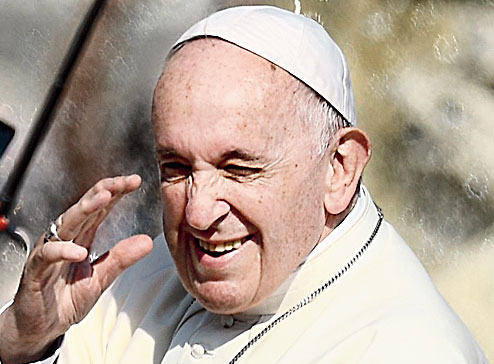Pope Francis on Sunday made saints of two of the most contentious Roman Catholic figures of the 20th century — murdered Salvadoran Archbishop Oscar Romero and Pope Paul VI, who reigned over one of the Church’s most turbulent eras and enshrined its opposition to contraception.
In a ceremony before tens of thousands of people at St. Peter’s Square, Francis declared the two men saints along with five other lesser-known people who were born in Italy, Germany and Spain in the 18th and 19th centuries.
Both Romero, who was shot by a Right-wing death squad while saying Mass in 1980, and Paul, who guided the Church through the conclusion of the modernising 1962-65 Second Vatican Council, were contested figures within and without the Church.
Both were naturally timid men who were thrust to the forefront of history by the convulsive political and social changes of the 20th century and both had a lasting influence on the current pontiff, Francis, Latin America’s first Pope.
In his homily, read with tapestries of images of the seven new saints hanging from St. Peter’s Basilica behind him, Francis called Pope Paul “a prophet of an extroverted Church” who opened it up to the world. He praised Romero for disregarding his own life “to be close to the poor and to his people”.
Romero, who had often denounced repression and poverty in his homilies, was shot dead on March 24, 1980, in a hospital chapel in San Salvador, the capital of the impoverished central American country of El Salvador.
Romero’s murder was one of the most shocking in the long conflict between a series of US-backed governments and Leftist rebels in which thousands were killed by Right-wing and military death squads.
Paul VI, a shy man described by biographers as a sometimes indecisive and tormented Hamlet-type figure, guided the Church through the conclusion of the Second Vatican Council, which had started under his predecessor, and the implementation of its reforms. He was elected in 1963 and died in 1978.
Despite his many reforms, Paul is perhaps best known for his 1968 encyclical Humanae Vitae (On Human Life), which enshrined the Church’s ban on artificial birth control, saying nothing should block the possible transmission of human life.











